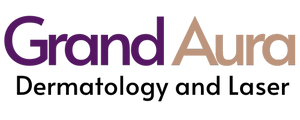Rosacea
What is Rosacea?
Rosacea is a long-term skin condition that mainly affects the face. It's more common in women and people with lighter skin, but symptoms can be worse in men. Treatment can help with symptoms.
The first signs of rosacea include:
- redness across your nose, cheeks, forehead, chin, neck and chest that comes and goes, usually lasting for a few minutes each time – your face may also feel warm, hot or painful
- a burning or stinging feeling when using water or skincare products
The redness may be harder to see on brown or black skin.

Other symptoms can include:
- dry skin
- swelling, especially around the eyes
- yellow-orange patches on the skin
- sore eyelids or crusts around roots of eyelashes – this could be blepharitis
- thickened skin, mainly on the nose (usually appears after many years)
Triggers
It's not known what causes rosacea, but some things can make symptoms worse.
Common triggers for rosacea include:
- alcohol
- spicy foods
- hot drinks
- sunlight
- hot or cold temperatures
- aerobic exercise, like running
- being stressed
Treatment for Rosacea
Initially a consultation with a Consultant Dermatologist will be required to confirm diagnosis.
Treatment plans are tailored to suit individual needs and treatment plans are always overseen by a dermatologist.
Treatment plans can include a variety of things including:
- prescriptions for creams and gels
- antibiotics
- skin peels
- homecare products
- laser treatment.
Consultation Fee is £200 with Consultant Dermatologist and £250 with Medical Director. Follow up appointments are £97 with Consultant dermatologist and £107 with Medical Director.



